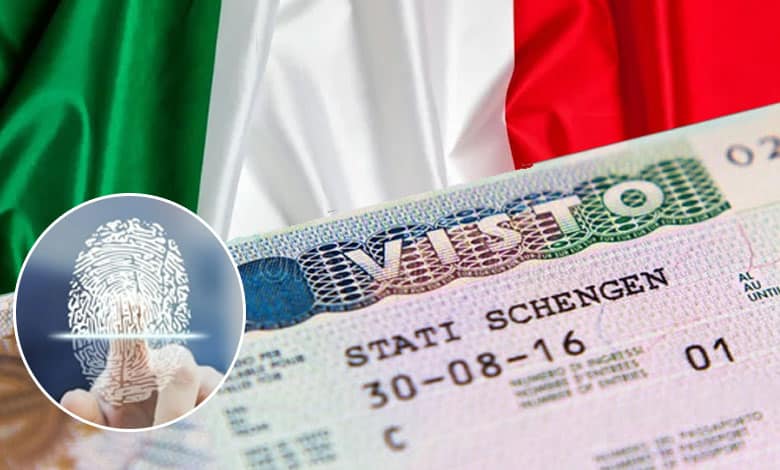Italy to Introduce Fingerprinting for Study Visa Applicants from January 2025, Affecting International Students
In a significant move that is set to impact international students, Italy will introduce new requirements for applicants of the Type D study visa starting January 2025.

Location: Rome, Italy: In a significant move that is set to impact international students, Italy will introduce new requirements for applicants of the Type D study visa starting January 2025. This change will require all applicants, including those from India, to undergo fingerprinting at Italian consulates as part of the visa application process. The decision is being implemented to enhance security but is expected to add both financial and logistical challenges for students pursuing long-term education in Italy.
Table of Contents
What Is the Type D Visa and Who Does It Affect?
The Type D visa is issued to foreign nationals planning to stay in Italy for more than 90 days. This includes international students who are attending undergraduate, postgraduate, or research programs. As part of the updated process, all students applying for a Type D visa will now be required to schedule and attend an individual fingerprinting appointment at their local Italian consulate starting January 10, 2025. This marks a shift from the previous system, which allowed group appointments and batch processing.
The new measure is part of Italy’s efforts to improve border security and tighten controls on international travel. However, it will create additional hurdles for students applying for study visas, particularly in terms of both time and costs.
Impact on Indian Students
Indian students make up a significant portion of those applying for study visas to Italy. According to official figures, in 2024, Italy issued study visas to 6,017 Indian students, a notable increase from the 5,196 granted in 2023. With this change in procedure, Indian applicants will now have to travel to consulates to submit their fingerprints, adding to the already existing costs associated with visa applications, travel, and accommodation.
The introduction of individual appointments for fingerprinting also raises concerns about the potential increase in waiting times, as students may need to schedule appointments months in advance. This can be especially challenging for applicants residing in remote areas or places far from the nearest consulate, further increasing their travel expenses.
Concerns from Education Bodies and Stakeholders
The policy change has sparked concern among various stakeholders in the international education sector. Melissa Torres, the CEO of the Forum on Education Abroad, voiced her concern, highlighting that many students would now face additional financial burdens due to travel expenses, and the long wait times for fingerprint appointments could impact the overall student experience.
US-based organizations like NAFSA (National Association of Foreign Student Affairs) have criticized the new policy, warning that the additional bureaucratic load might discourage students from choosing Italy as their study destination. With alternatives like the UK, Canada, and the US offering more straightforward visa processes, the policy could lead to a shift in student preferences towards countries with fewer administrative hurdles.
There are also calls for Italy to explore alternative solutions, such as allowing students to complete the fingerprinting process at local police stations or through honorary consulates to reduce the burden on Italian consulates. Education bodies are urging the Italian government to allocate additional resources to visa processing to streamline the process and prevent unnecessary delays.
Stay-Back Option Unaffected
While the new fingerprinting rule adds complexity to the visa application process, Italy’s popular 12-month stay-back option for Indian students remains unchanged. This program allows students to stay in the country after completing their studies to gain professional experience, offering a valuable opportunity for those seeking to start their careers in Italy.
What Lies Ahead?
As Italy moves forward with these new regulations, students and educational institutions alike will be watching closely to understand how these changes affect the flow of international students. While the focus on security is essential, it’s clear that the new procedures will require significant adjustments from both applicants and consulate staff. The outcome of this policy change will likely influence Italy’s standing as a top destination for international students.
For now, applicants are advised to start preparing for the updated procedures and to keep a close eye on any further announcements from Italian consulates and visa agencies.
